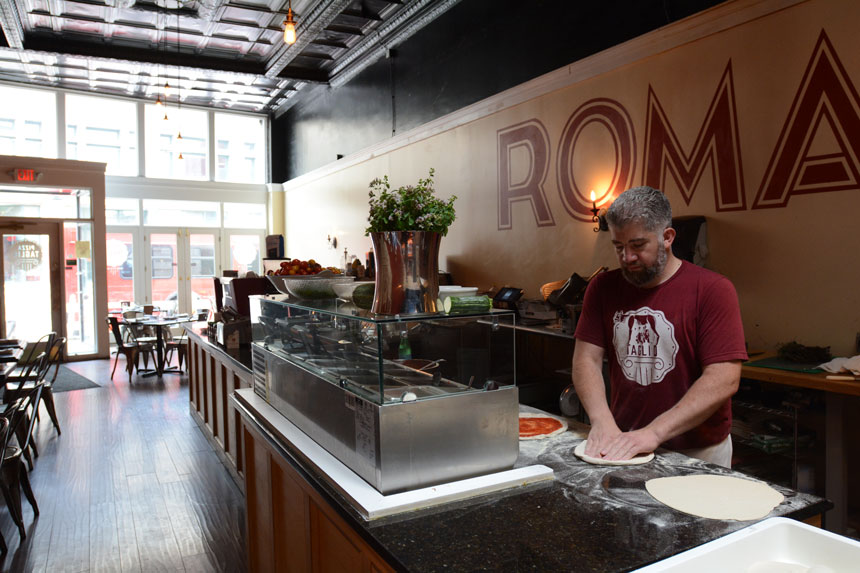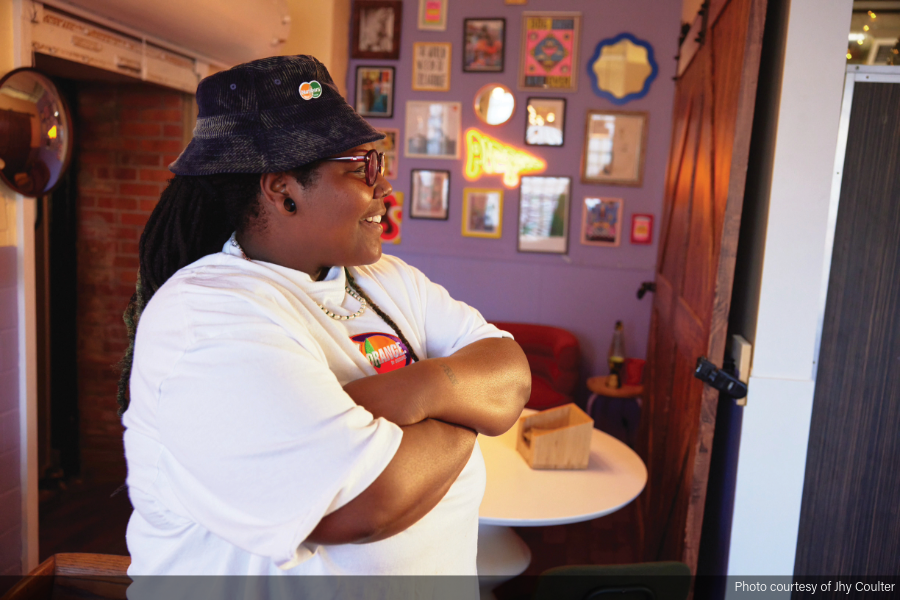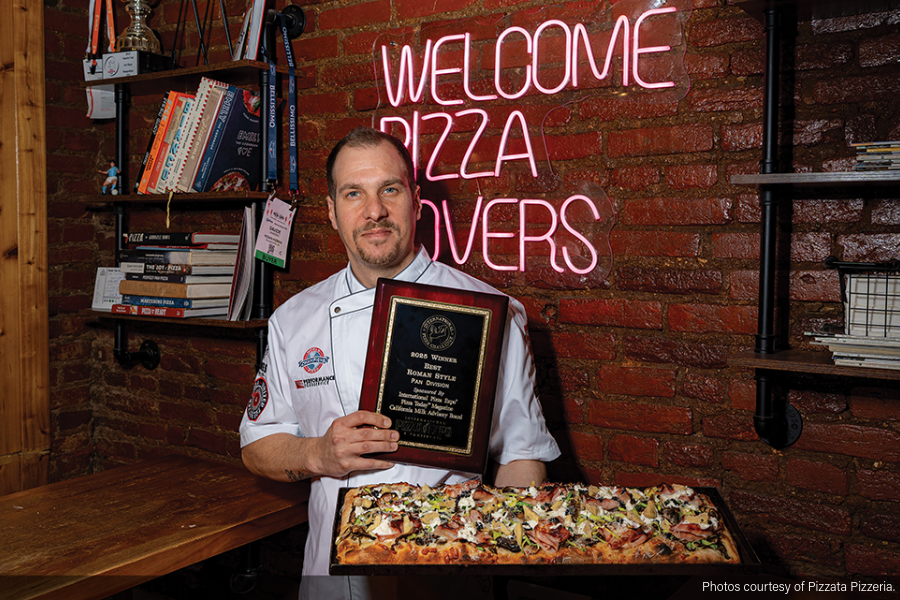Time to educate your guests
I definitely live inside a bubble. My social media world is composed mainly of pizza makers who don’t stop talking about their dough. Cheese, tomatoes, and toppings are all important, but nobody I know stresses about those elements in the way they do about their dough. On the contrary, pizzeria customers have no idea what’s going on beneath the cheese and sauce. This disconnect between your effort and their attention makes for a great
opportunity to educate your customers about something to which they have given very little thought.

Scott Wiener
Founder, Scott’s Pizza Tours and SliceOutHunger.org
Do you use unbleached, non-bromated flour? If you do, tell your customers! They probably have no idea what those processes are, but knowing you avoid them is a potential point of differentiation between you and your competitors. Bleached flour is brightened with chemicals like chlorine and benzoyl peroxide. The process gives flour a longer shelf life, but only at the expense of nutrients. Potassium bromate is a dough conditioner that oxidizes flour so it can ferment faster and trap more fermentation gas. Most countries (Canada, China, the European Union) have banned it, but it’s under no major restriction by the U.S. government. On the bright side, more and more companies now offer products that are not bleached or bromated. If you use those, it’s an easy way to pitch why your pizza is a better bet than that of your competitor.
Do you use a pre-ferment in your dough? Most pizzerias employ a Direct Method dough process that incorporates all ingredients at the same time. The Indirect Method kicks off fermentation before the dough making process even begins by incorporating a preferment like biga, polish or mother. There are lots of textural and flavor advantages to using a pre-ferment — and you should be shouting about it from the mountaintops if you do. Employing a natural fermentation method by way of a starter culture is another huge selling point and I’m amazed when I see pizzerias NOT sharing the process with their customers.
As the second most populous ingredient in your dough, water is the Robin to flour’s Batman. It’s responsible for all the biological reactions behind fermentation. Your customers probably think all water is the same, but if you’ve ever tried to reproduce your dough using a foreign water supply you know that changes have to be made. If you filter, de-chlorinate, replicate or source your water from an off-site location, let your customers know! And don’t play into the myth that importing New York City tap water is going to make your crust superior. I’ve eaten a pretty serious amount of pizza across the five boroughs — and I can tell you that even though we have loads of great pizza, it’s still painfully easy to get a bad slice even with our “magical water.”
The pizza industry is clearly experiencing a crust moment. It seems like everyone is honing their dough skills and it’s not something your customers are thinking about. Use the opportunity to educate them and you’ll find yourself ahead of your competitors. And if you’re NOT concerned with your dough, you probably want to get on that right away or risk being left in the dust by the pizzeria across town.
Scott Wiener is the founder of Scott’s Pizza Tours in New York City and SliceOutHunger.org.








